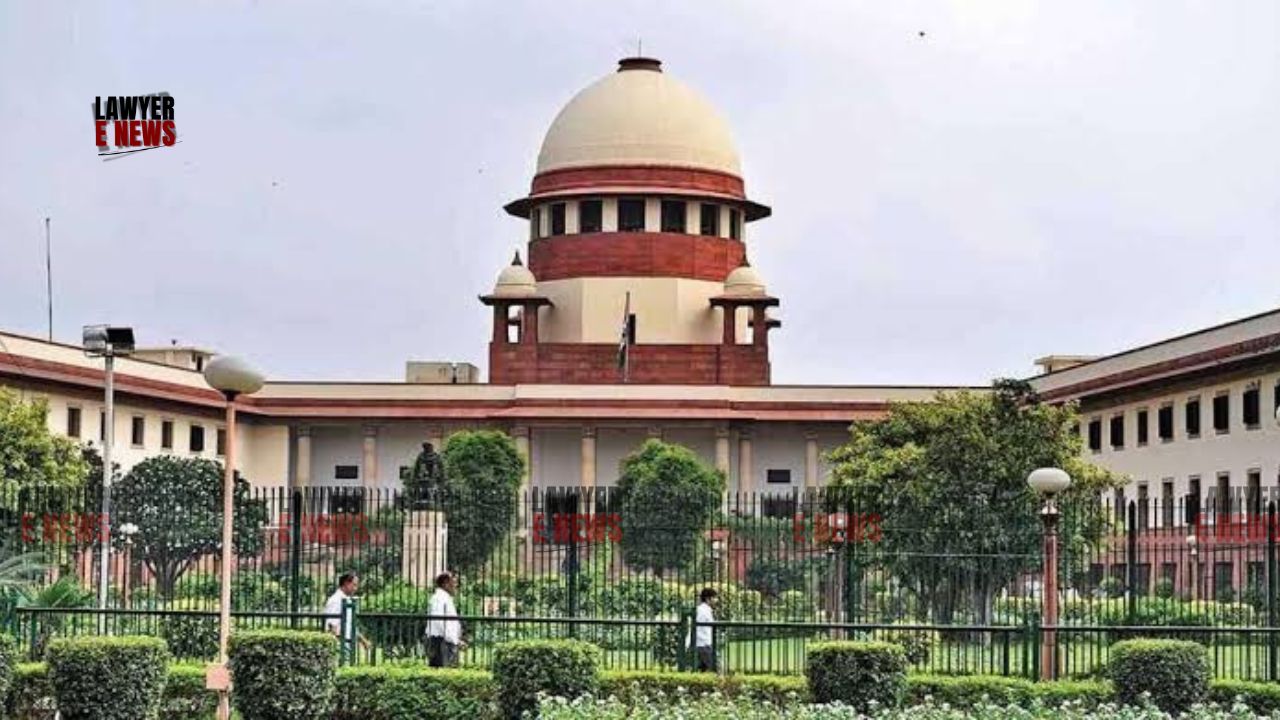-
by Admin
16 February 2026 1:47 PM



“Mature Adults in Consensual Relationships Must Accept Consequences — Not All Fallouts Can Be Prosecuted,” - In a significant ruling with implications for personal liberty and criminal jurisprudence, the Supreme Court on April 7, 2025, quashed criminal proceedings against Biswajyoti Chatterjee, a retired Civil Judge, who was facing trial for rape, cheating, and intimidation based on allegations of a relationship turned sour.
Delivering judgment in Biswajyoti Chatterjee v. State of West Bengal & Anr., Criminal Appeal arising out of SLP (Crl.) No. 4261 of 2024, a Bench of Justices B.V. Nagarathna and Satish Chandra Sharma held that the relationship between the complainant and the accused was clearly consensual, and no case of rape or criminal intimidation could be sustained.
“Even if the allegations in the FIR and the charge-sheet are taken at their face value, it is improbable that the complainant engaged in a physical relationship only on account of an assurance of marriage.”
“She Knew He Was Still Married – That Makes False Promise of Marriage Unsustainable,” Holds Apex Court
The complainant, a woman involved in matrimonial litigation of her own, alleged that she met the accused — then posted as ACJM, Haldia — in 2014, and was promised marriage once her divorce was finalised. She claimed he kept her in a rented house, supported her financially, admitted her son to school, and maintained physical relations on this promise. But once her divorce came through, she alleged, the accused distanced himself.
The Court, however, noted that the woman was well aware that the accused was still legally married (though separated), and yet voluntarily chose to be in a relationship.
“The complainant had full knowledge of the personal and professional background of the accused. She made a reasoned choice to sustain a relationship with him.”
“One cannot plead ‘rape on false promise of marriage’ when it was always known that the promise was unenforceable.”
“Promise of Marriage Must Be False At the Outset – Not Broken Later,” SC Applies Pramod Suryabhan Doctrine
Relying on the principles laid down in Pramod Suryabhan Pawar v. State of Maharashtra, the Court reiterated that: “A false promise to marry must be made in bad faith, with no intention to marry at the time it was made. Only then can it vitiate consent under Section 375.”
It further clarified that not every failed relationship involving sex constitutes rape, especially when both parties are mature, consenting adults.
“The burden is on the prosecution to prove each and every ingredient of the offence, absence of consent being one of them. In this case, there is no such proof.”
“Contradictions and Gaps in Statements Make the Prosecution Unreliable,” Court Finds No Evidence of Coercion or Intimidation
The Supreme Court also took note of inconsistencies in the complainant’s narrative, especially regarding how she met the accused. In her statement under Section 164 CrPC, she claimed the accused introduced her to his lawyer. But charge-sheet records showed it was the lawyer who introduced her to the accused.
“This contradiction is not minor. It casts doubt on the entire sequence of events and the nature of the relationship.”
The Court also ruled out the charges under Section 506 IPC (criminal intimidation) and Section 417 IPC (cheating), holding that no threat, inducement, or dishonest intention had been established.
“A bare allegation that the accused threatened harm cannot amount to criminal intimidation in the absence of supporting material.”
“This Is the Kind of Case That Must Be Nipped at the Stage of Framing Charges,” Says Supreme Court, Warning Against Misuse of Criminal Law in Personal Matters
Criticising the tendency to criminalise failed relationships, the Court made a broader observation on the increasing misuse of criminal law in intimate matters.
“There is a growing tendency of resorting to criminal proceedings when relationships turn sour. Every consensual relationship where a possibility of marriage may exist cannot be given a colour of false pretext to marry in the event of a fallout.”
The Court also invoked the principle of judicial economy, noting that the case dated back to 2014, and any further litigation would only prolong suffering for both parties, who were now leading separate lives.
“In the facts of the case, it is clear that the physical relationship between the complainant and the accused was consensual — it cannot be said to be without her consent or against her will.”
With these findings, the Supreme Court set aside the High Court’s refusal to discharge the accused and quashed the criminal proceedings.
The appeal was allowed. The criminal case stands terminated.
Date of decision : April 7, 2025
